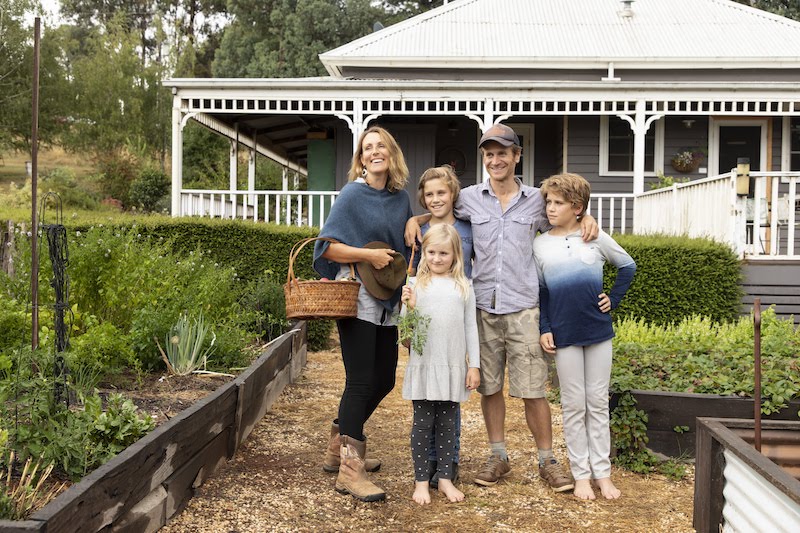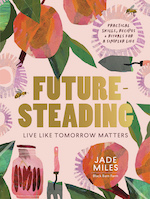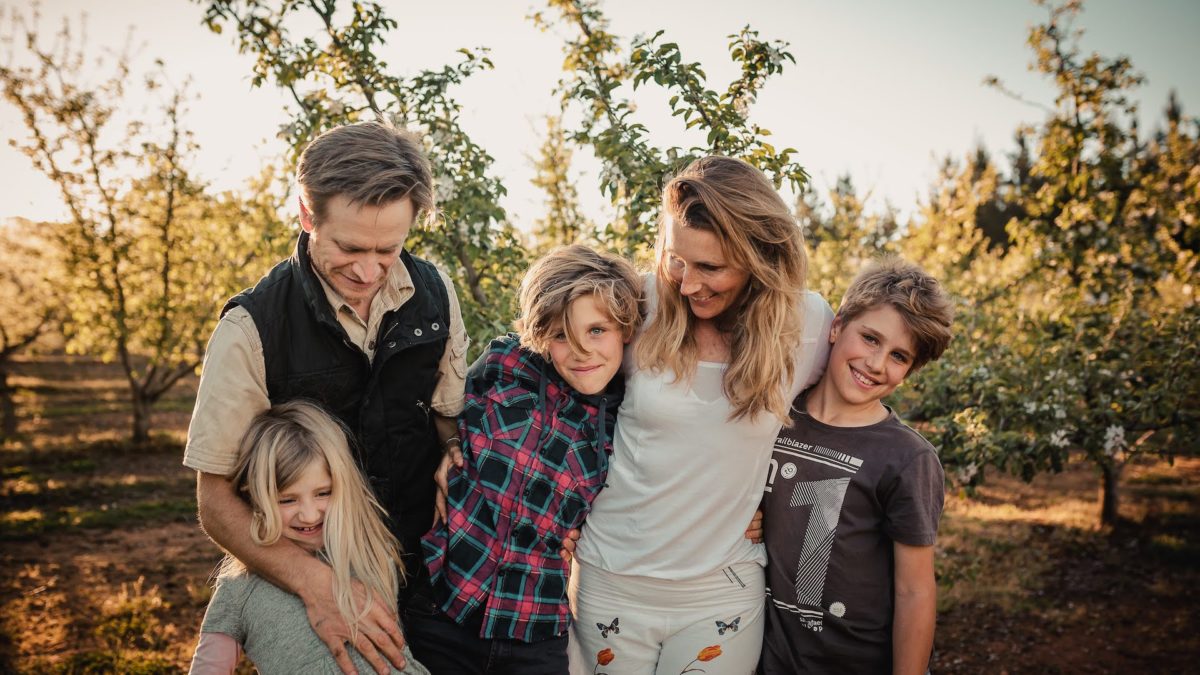The way we choose to live our days is the way we spend our lives. Regardless of where and how you dare to live your life, the decisions you make are best directed by values that transcend your every day.
Our choices and decisions led us exactly to where we are. This is the reality for most of us. Charlie and I are farmers! We left professional careers, where the income was regular and our title was easily explained, because we knew that we needed more, for us and for our kids. Not more money or status, but more family time and gritty, experience-laden wealth. Now, our days flow without formality, facades or bureaucracy. We make our own decisions, change our mind if we wish to, and go slower if we need to. Our kids are entrenched in this life, too, so we face our celebrations and challenges together. While the reality of farming is anything but romantic, it’s disappointing that it’s rarely encouraged or saluted. It’s such a shame!
For while it is indeed void of glory, it certainly isn’t void of gloriousness.
As a family of five, our transition to this way of life has been slow and in response to lots of things: Health, time, new knowledge, support from others, growing seasons, money . . . the list goes on. We’ve made mistakes every step of the way, often with things that we thought would be easy (such as raising meat birds), and discovered how simple it can be to adapt to some things (such as making herbal tea).
The hours we work are long. We work in the rain, we work when no customers come, we work until we get blisters—and every day is a work day. The financial reward for our efforts is low, but our days are ours, and we adapt according to our needs. No day is ever the same, and the simple production of food is more deeply satisfying than we ever imagined. Regular money no longer lands in the bank, so our creative approach to paring our needs back is a never-ending challenge, but it sifts the needs from the wants and gives us time to assess what matters.
Our lungs work hard with the physical exertion, but the air we breathe is clean, and we stop to eat lunch outside every day. Life is now ours to make mistakes (doing too much too quickly), overcome challenges (birds in the orchard) and be deeply connected to our community—so really, we wouldn’t change a thing!
We debate our ideology and nag to get jobs done. Our vision has been a long, clear one and it’s definitely taking shape, but not without massive sacrifices: Spontaneity, restfulness and sometimes joy and frivolity. I’m incredibly grateful for the way our kids view their world, and hope that they can see past the things they don’t have and realise what they do have: Bare feet, paddock picnics, dam swims, bush biking—and quality family time.
We haven’t got everything right. Just like you, we’re human, we’re trying and we’re transitioning. There are still plenty of changes to make, but focusing on the things that we’re not doing correctly—or at all—takes away from the things we have got right and can perform well. It’s all any of us can do.
An image of hope

For us, our hope looks something like my own childhood:
- The only rule was to stay within view of home, to have something on your head and be back before dark.
- Your bike was your freedom, and you laboured in the dirt making dugout forts.
- You rode your neighbour’s horse bareback in a swimming costume (it’s as uncomfortable as it sounds) to the creek, then jumped off a log into the swimming hole, and dried out in the sun next to the pile of freshwater mussels you’d just gathered.
- Shoes were unnecessary, and you could roam anywhere at full speed without the slightest foot falter.
- Your days were unplanned and unruled.
- You dashed nude to the creek from the hayshed cubby that made you all scratchy, before raiding the veggie garden or orchard for a feast.
- You filled buckets to brimming with freshly picked mushrooms.
- You painted yourself from top to toe in cow poo and dried in the sun until it cracked, then climbed into the cow trough to rinse clean.
I was especially lucky as a child because my neighbours were my best friends, and my multitude of cousins lived close by. Their parents were as preoccupied as mine doing grown-up things, so we were left to enjoy adult-free adventures that were as crazy as our imaginations allowed. Our activities brimmed with magic that built creativity, independence and immunity beyond our wildest dreams.
My desire to give my children this same experience nagged at me until we made it real. What I didn’t realise was that behind the scenes of my idyllic childhood, my parents were juggling the complexities of life. These are now ours to manoeuvre. While the issues feel all-encompassing at times, I think that my kids are as oblivious to them as I was back then—and if they’re not, then perhaps this reality is an important lesson.
More than anything, my wish for the next generation is that their childhood builds a foundation which encourages them to be “awake” to the natural world, considered in their actions and aware of the impact their decisions will have. I want their “woken” life to be rich with deep friendships, ritual, purpose and an appreciation of their role in contributing to the greater good.
I hope that they are guided by collectivism rather than individualism, but that they have the courage to be individuals who don’t fit inside anyone’s pigeonholed expectations. I long for their childlike curiosity to take them into adulthood, and for them to find awe in simplicity. I hope that they are nimble, adaptable and entrepreneurial in spirit. But most of all, I simply want them to know love, to laugh often and to be true to themselves. This is resilience!

Images and text from Futuresteading by Jade Miles; photography by Karen Webb. Murdoch Books RRP $39.99.
How helpful was this article?
Click on a star to rate it!
5 / 5. 1
Be the first to rate this post!
Jade Miles
Related posts
Subscribe
Receive personalised articles from experts and wellness inspiration weekly!


